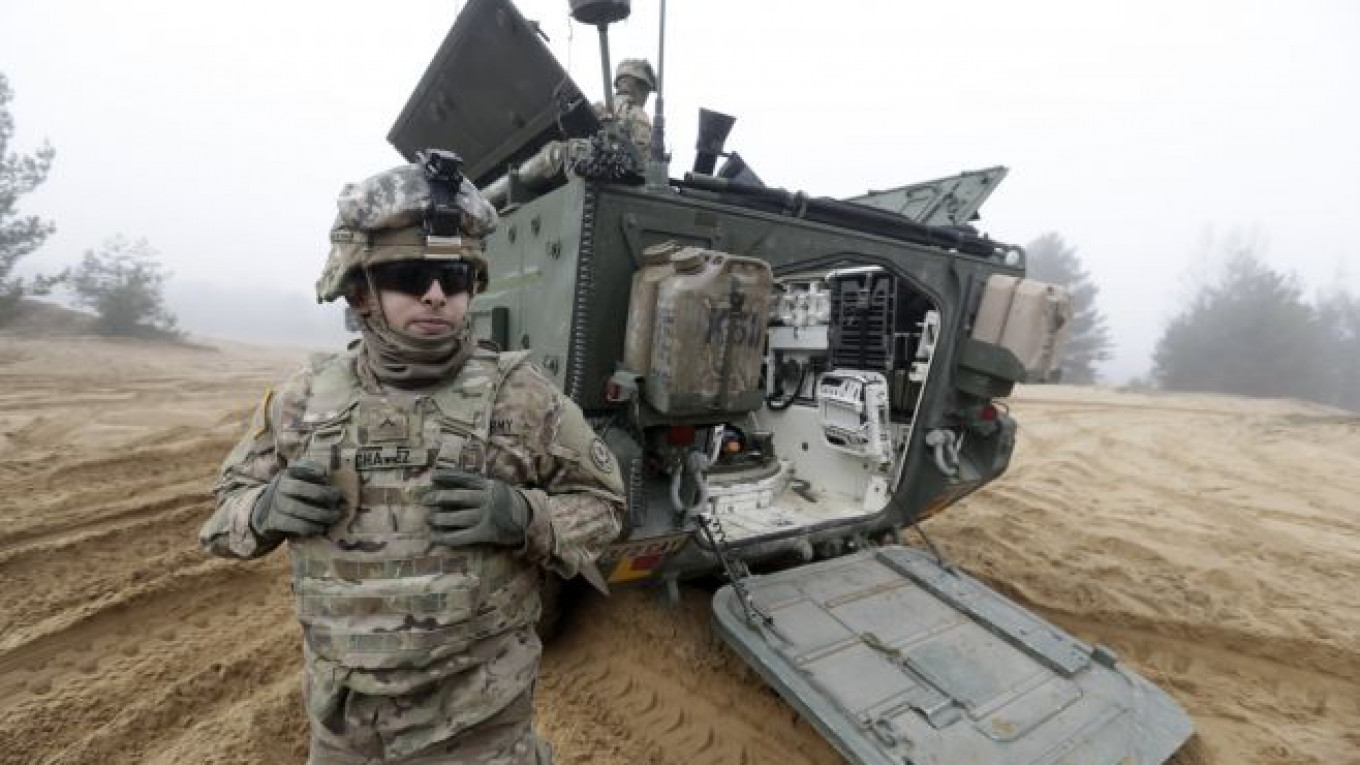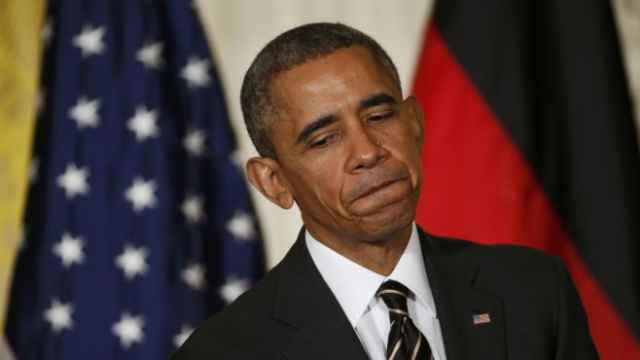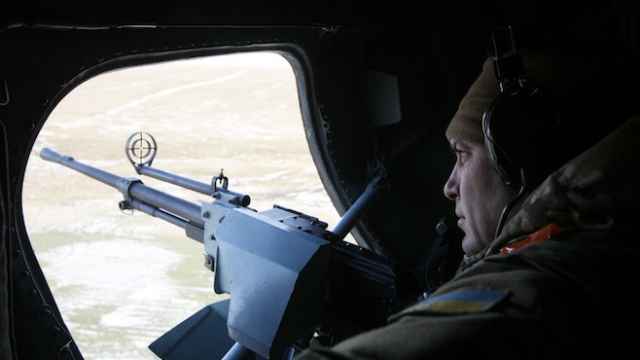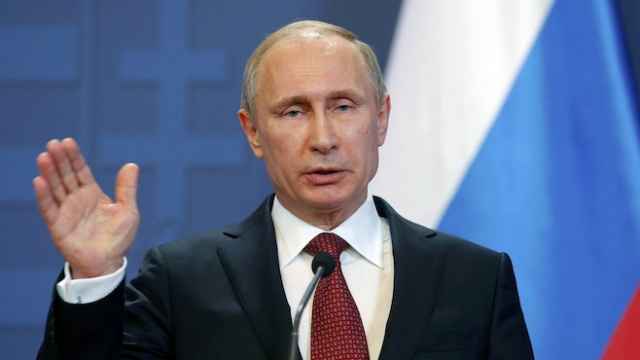About 750 U.S. Army tanks, fighting vehicles and other pieces of military equipment arrived in Latvia on Monday as a part of a training mission to reassure NATO allies worried about potential Russian aggression due to the Ukraine crisis, the Pentagon said.
Some 3,000 members of a 3rd Infantry Division brigade combat team will begin flowing into the region next week as part of a 90-day deployment to participate in multinational training missions with NATO partners in Estonia, Latvia and Lithuania, the department said.
Army Colonel Steve Warren, a Pentagon spokesman, said the unit would take over responsibility for the land forces training mission from the U.S. Army-Europe's 2nd Cavalry Regiment, which will depart later in March.
Warren said the rotation was part of the U.S. military's Operation Atlantic Resolve, aimed at demonstrating commitment to NATO allies in light of Russia's aggression in Ukraine.He said the equipment, which arrived in Riga, Latvia, by ship, was part of a regular armored brigade combat team set, including two battalions of tanks, two battalions of fighting vehicles, artillery, helicopters and other equipment.
Current plans call for the tanks, fighting vehicles and other heavy rolling stock now arriving in Latvia to remain in Europe after the 3rd Infantry Division brigade departs in 90 days, a U.S. military official said later.
U.S. military officials have said they planned to preposition equipment in Europe this year for a full brigade combat team so troops rotating to the region do not always have to ship over their equipment. It is not yet clear where in Europe the equipment will be permanently based.
Russia's support of anti-government rebels in Ukraine has raised concerns across the region about whether Moscow might make similar moves against other countries in eastern Europe.
A Message from The Moscow Times:
Dear readers,
We are facing unprecedented challenges. Russia's Prosecutor General's Office has designated The Moscow Times as an "undesirable" organization, criminalizing our work and putting our staff at risk of prosecution. This follows our earlier unjust labeling as a "foreign agent."
These actions are direct attempts to silence independent journalism in Russia. The authorities claim our work "discredits the decisions of the Russian leadership." We see things differently: we strive to provide accurate, unbiased reporting on Russia.
We, the journalists of The Moscow Times, refuse to be silenced. But to continue our work, we need your help.
Your support, no matter how small, makes a world of difference. If you can, please support us monthly starting from just $2. It's quick to set up, and every contribution makes a significant impact.
By supporting The Moscow Times, you're defending open, independent journalism in the face of repression. Thank you for standing with us.
Remind me later.






